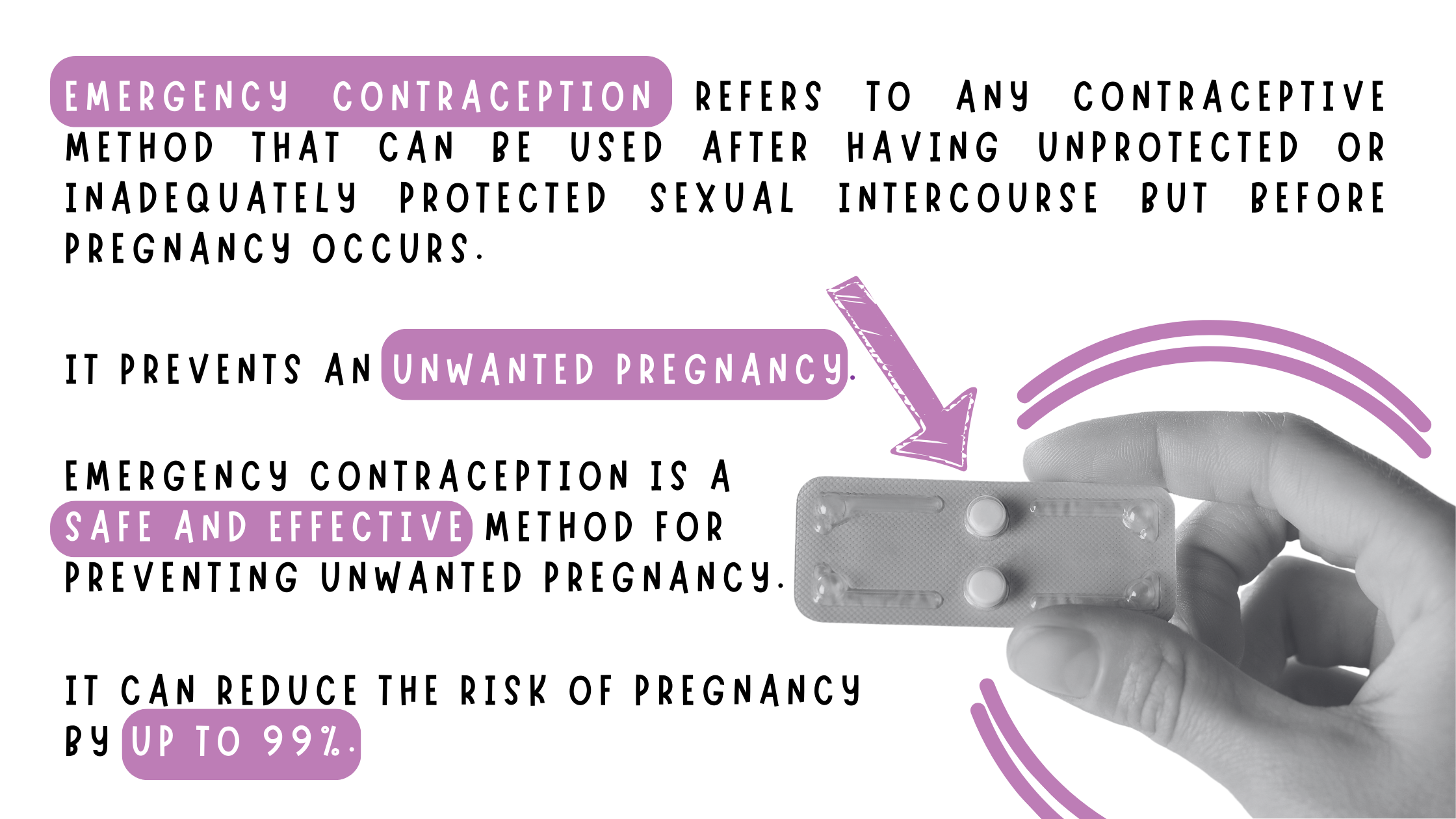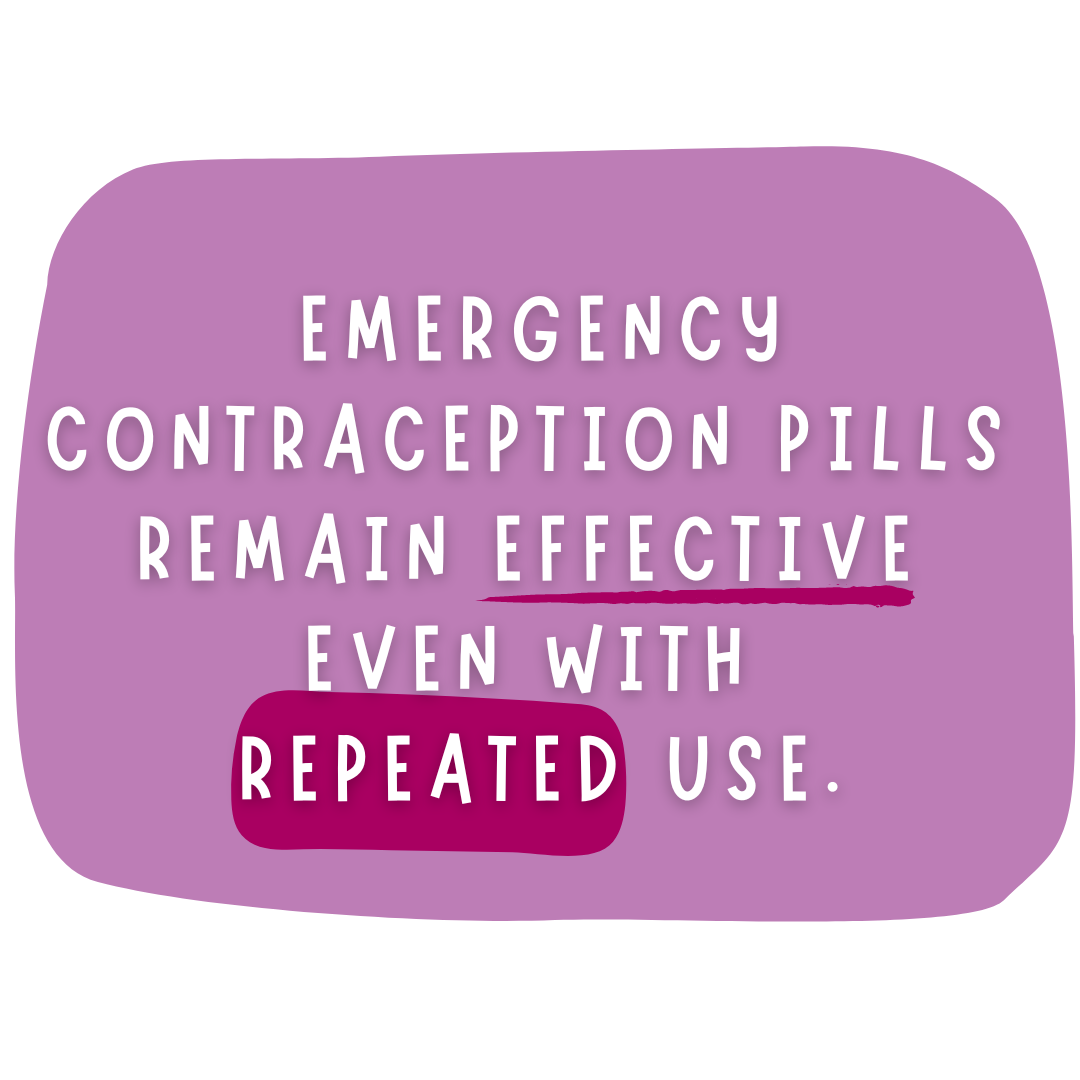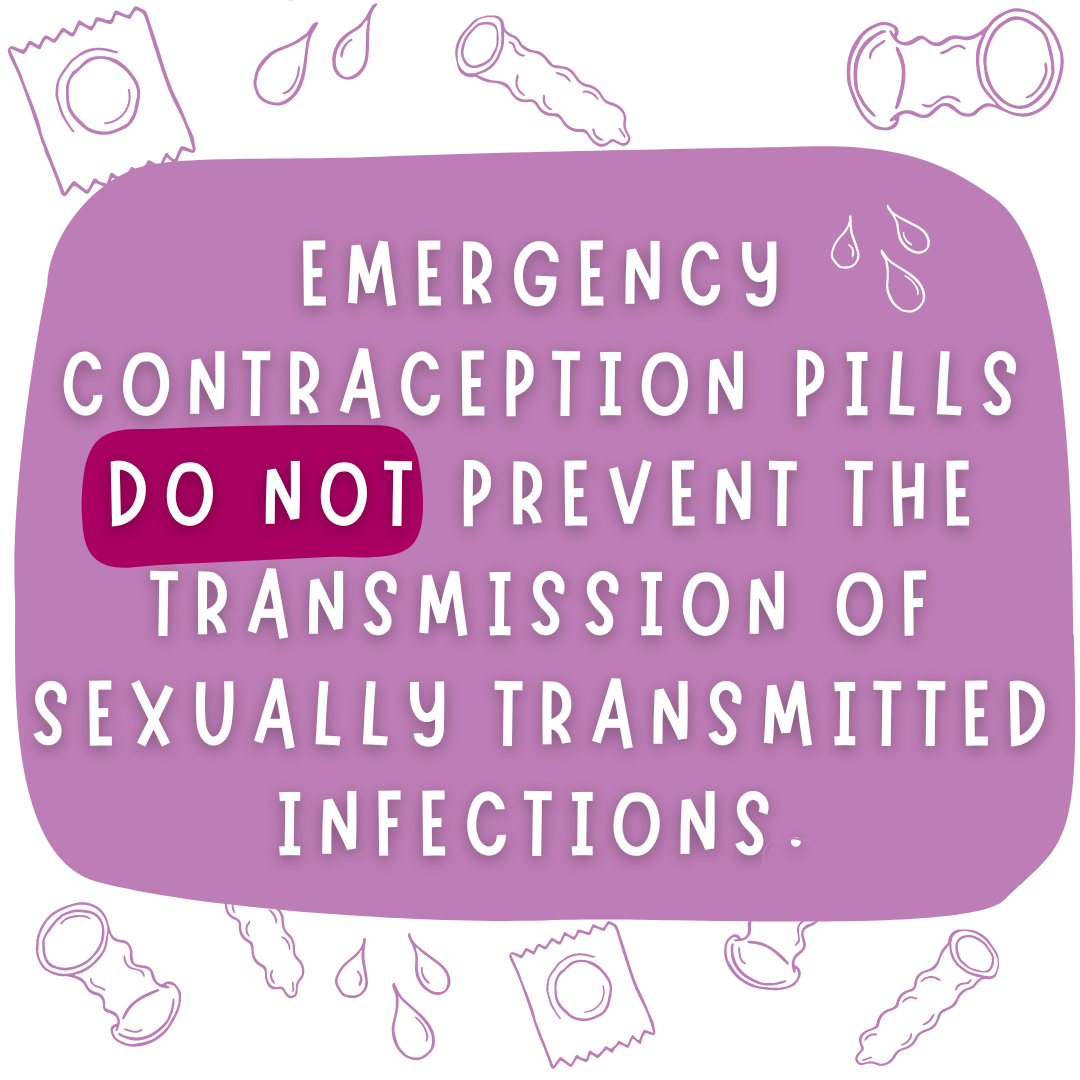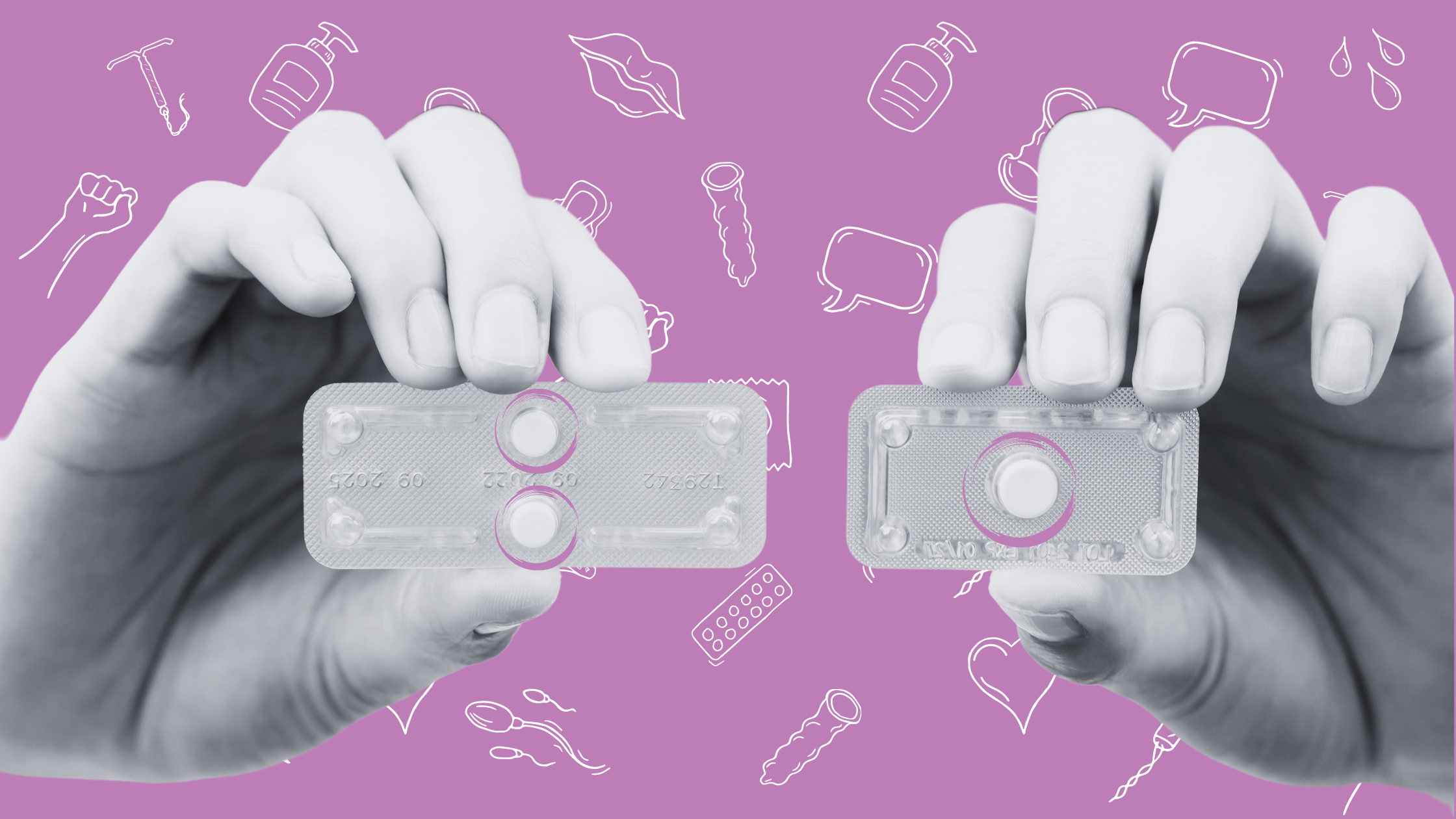
When can emergency contraception be used?
Emergency contraception is recommended after any episode of unprotected or inadequately protected sexual intercourse for any girl or woman or person with a uterus who wants to avoid becoming pregnant.
Unprotected or inadequately protected sexual intercourse generally means that either:
- No contraceptive method was used during intercourse,
- Or that the effectiveness of the contraceptive method was compromised during its use.
Example: The effectiveness of contraception may be lower due to, for example, irregular use of pills or incorrect use of a condom. If a woman is aware of these risks, she may reduce the chance of getting pregnant by taking emergency contraception.
The time frame for using emergency contraception
It is important to let women know that emergency contraception may still be used later than ‘the morning after’.
However, emergency contraception pills should be taken as soon as possible after unprotected or inadequately protected sexual intercourse.
The effectiveness of emergency contraception pills is highest when they are taken within 24 hours of unprotected sex.
Emergency contraception can be used to prevent pregnancy up to 120 hours (five days) after unprotected sex.


Repeat use of the emergency contraception
There are no known adverse health effects if emergency contraception pills are used more than once during the same menstrual cycle. Although the bleeding pattern will be affected.
Repeated use of emergency contraception pills would entail the same contraindications as those of regular hormonal contraceptive methods.
Although no long‑term adverse health effects are to be expected from repeat use, women do suffer more from side effects if they use emergency contraception pills repeatedly, particularly bleeding irregularities.
Effectiveness of emergency contraception pills is not affected by repeat use.
However, overall effectiveness over one‑year use is lower than most modern contraceptives, so emergency contraception pills should not be recommended as an ongoing method of contraception. Concerns have been raised about whether easy access to emergency contraception pills could lead to lower uptake of regular contraception. However, there is no evidence of such a relationship.
Example: Women who receive an advance supply of emergency contraception pills have been found to be more likely to use them when they have had unprotected sex, but are not more likely to abandon regular contraception.
However, if overall effectiveness over one‑year use of emergency contraception pills is lower than most modern contraceptives, so emergency contraception should not be recommended as an ongoing method of contraception. If a woman has many episodes of unprotected or inadequately protected sexual intercourse, it may be advisable to recommend that she considers using a more effective contraceptive method or that she changes her current method.
An IUD as emergency contraception may be useful in this case, and should be suggested as a first choice.

What about STI risk?
Emergency contraception pills do not prevent the transmission of sexually transmitted infections (STIs).
It is important to emphasise that this applies to all contraceptives other than condoms and should not constitute a selective bias against emergency contraception pills.
If a woman is at risk of an unwanted pregnancy, she may be at risk of STIs as well and STI and HIV testing could be offered.

when
Subject
Emergencies, Contraception











